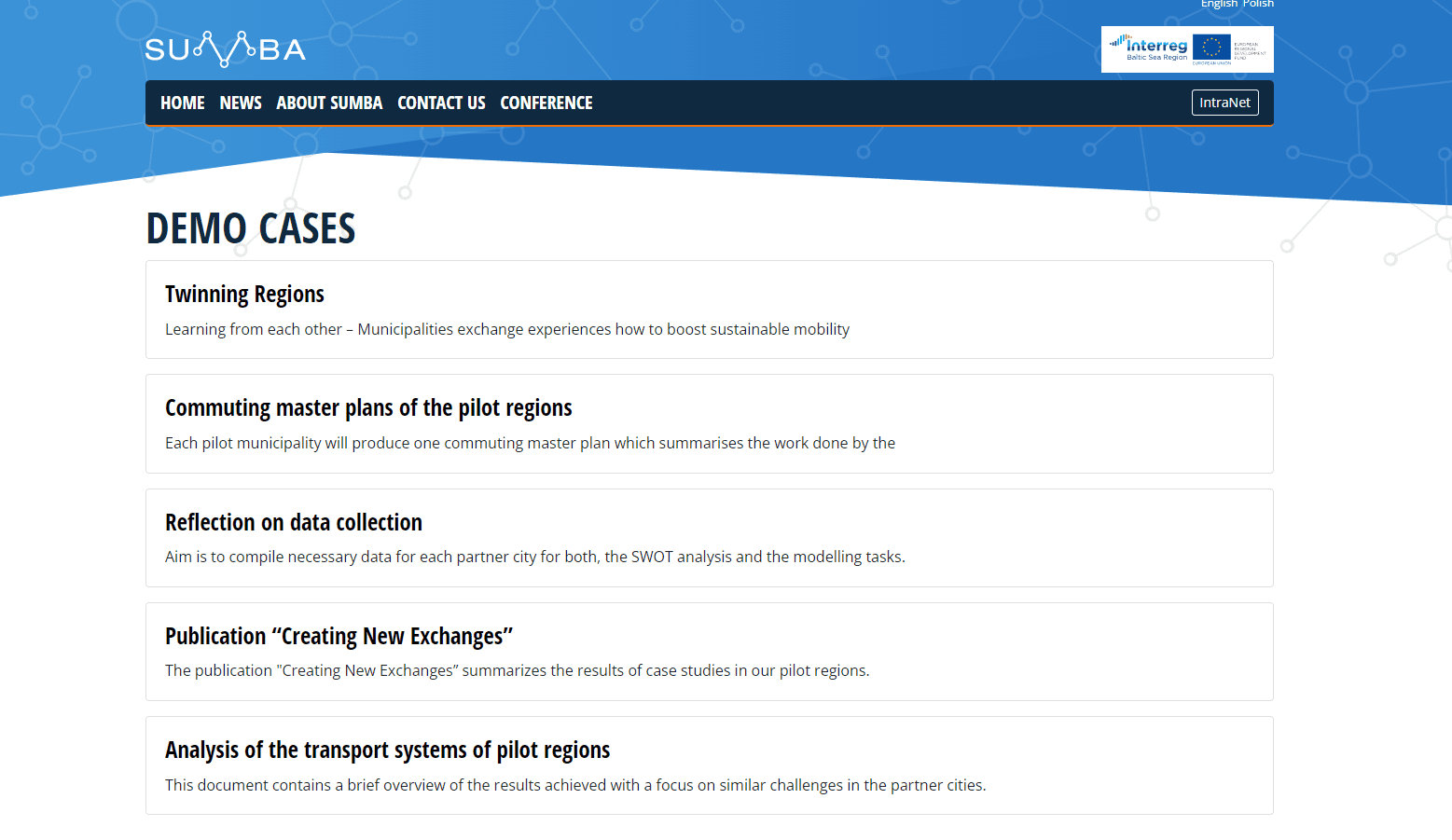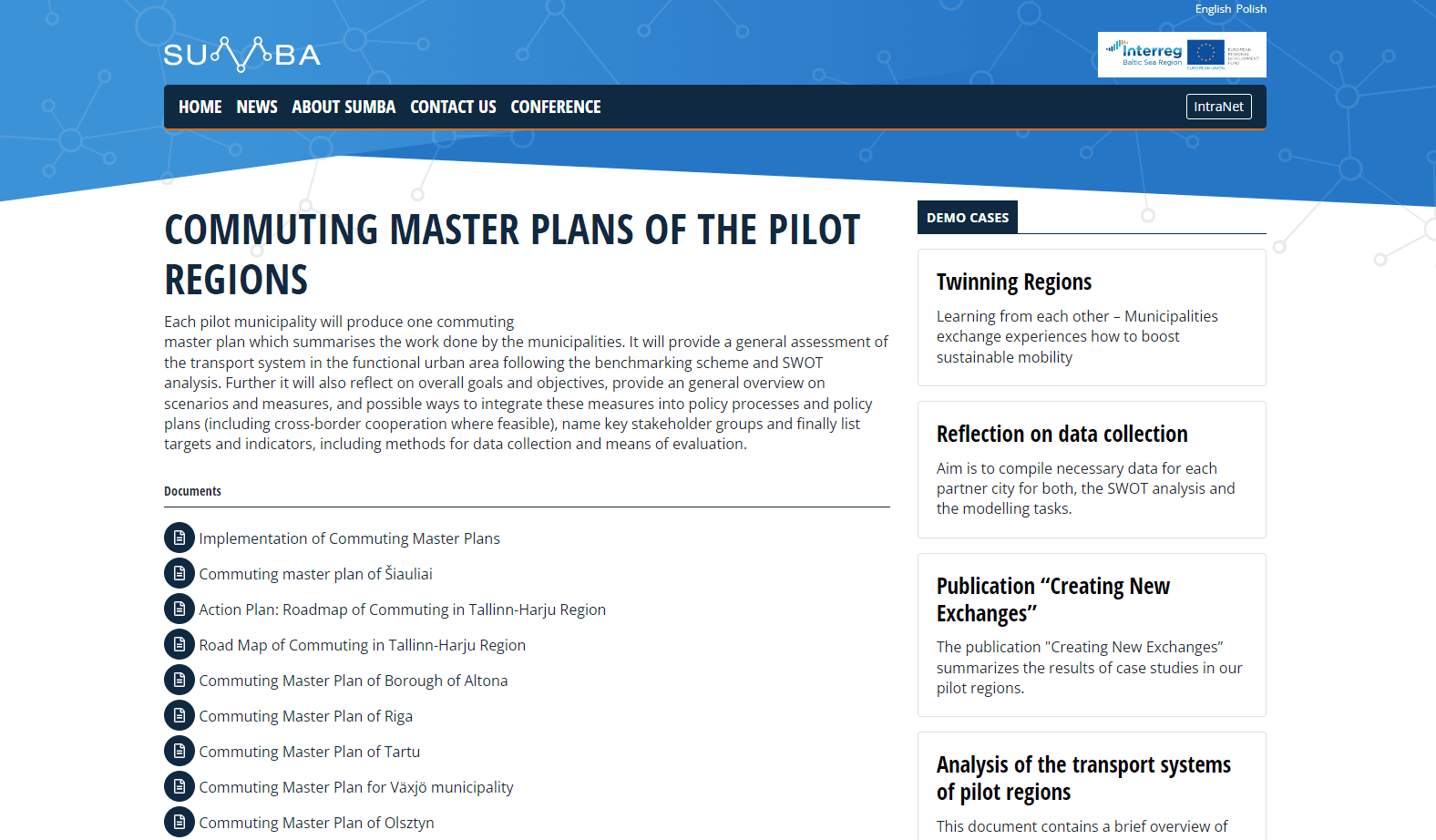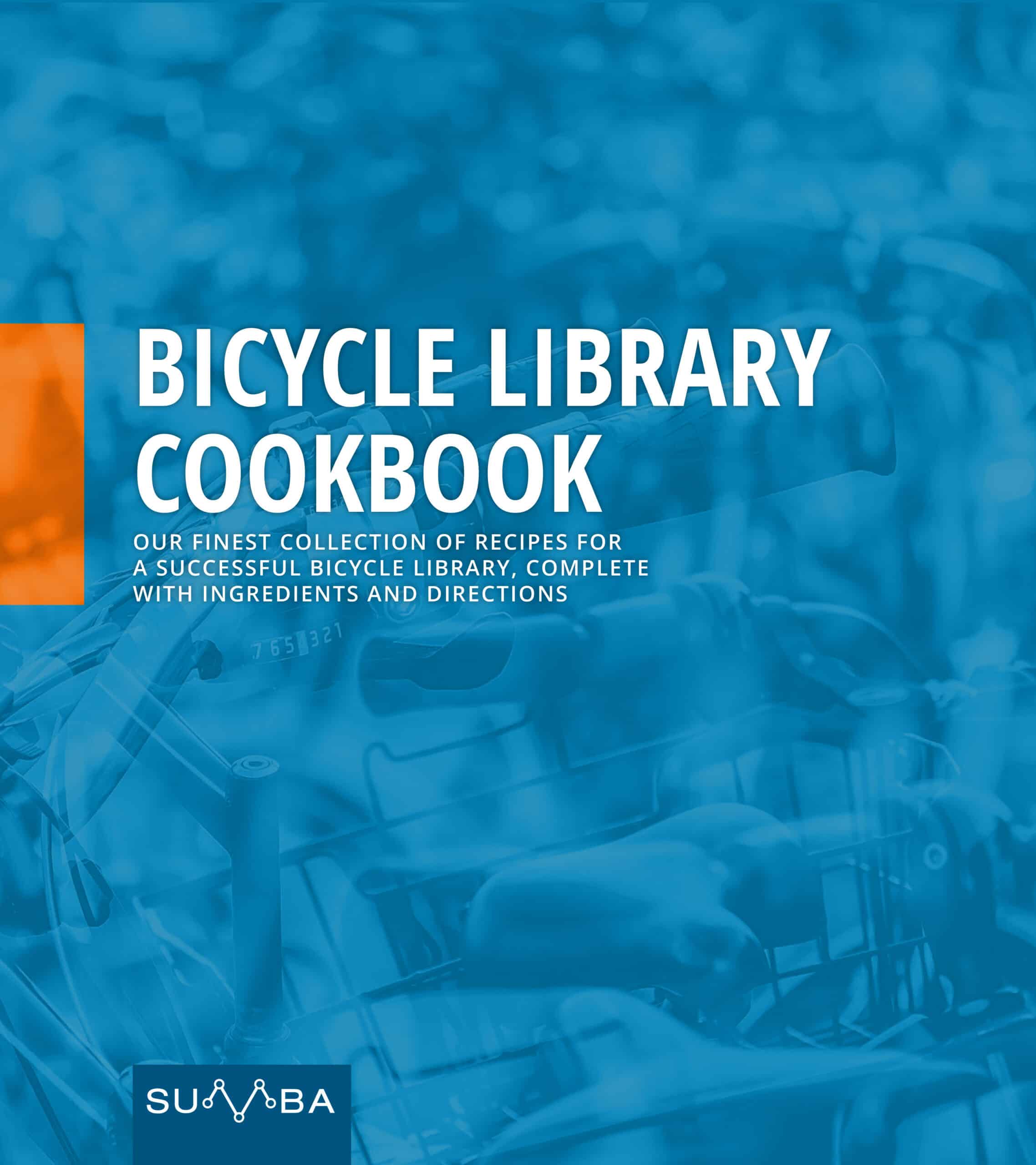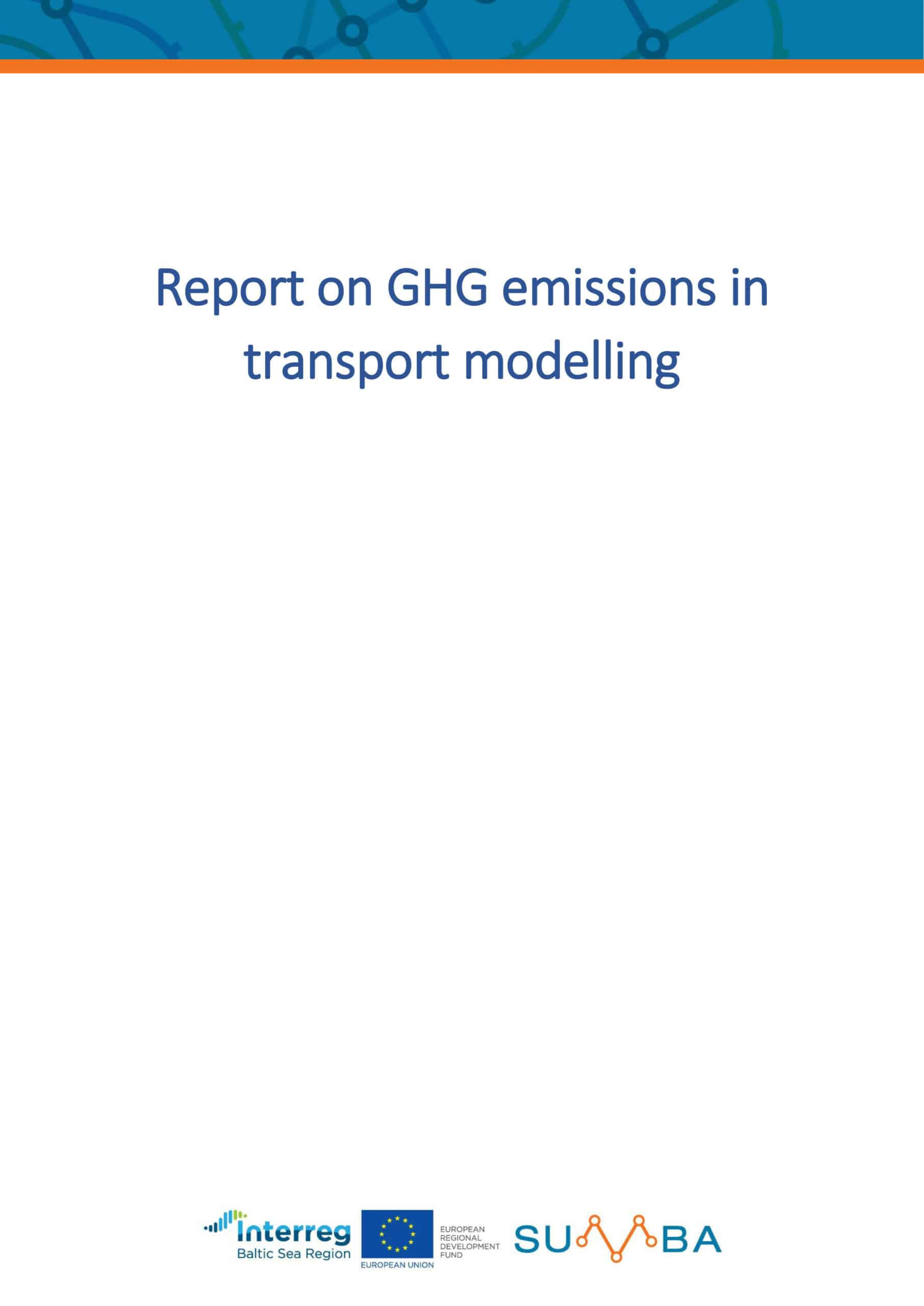SUMBA+
Tackling emissions in transport
Commuting by car from suburbs to metropolitan areas is the most common way observed in the identified areas in the Baltic Sea region. While the citizens are trying to find the most optimal and convenient way of commuting, the cities are struggling with increasing emissions and climate change mitigation. Climate mitigation is impossible without including transport solutions and finding new ways of tackling emissions. On this background, an alternative combination of various transport modes, including bike and car sharing, would help the cities to reach the wishful targets and introduce an environmentally friendly commuting system.
A clear policy framework needed
In order to ensure the durability of sustainable solutions, the cities would need to integrate alternative mobility options in transport plans and policies. A better understanding of actions needed in policy implementation and who should be involved in the transformation process is needed.
SUMBA+ addressed the challenge of car-based commuter traffic causing among others congestion, high greenhouse gas and air pollution in cities. The project supported the implementation of commuting master plans developed by its forerunner SUMBA project into practice.
Budgets
in numbers
-
0.83MillionTotal
-
0.67MillionErdf
-
0.00MillionEni + Russia
-
0.00MillionNorway
Achievements
The SUMBA+ project studied and tested measures that facilitate intermodal and sustainable commuting. The measures include mobility hubs, circulation plans, bicycle library, digital means of communicating transport strategies and modal share measurements.
Partners expanded their capacity to work with transport models, including integrated emissions analysis, to evaluate measures prior to implementation.
The bicycle library concept was developed and got various manifestations in three partner cities: Växjö, Tartu and Hamburg Altona. Experiences and lessons from the concept were communicated at various events and served as a basis for so-called “Bicycle library cookbook” that helps other cities to learn and implement a similar concept.
Mobility hubs, an important measure and mobility tool from the SUMBA main project, was examined in several different analyses in four partner cities and regions including Hamburg Altona, Riga Planning Region, Tallinn and Harju County, and Växjö municipality.
Lastly, a dissemination toolkit was created to provide project partners resources that help communicate project activities and outputs including film, document and communication templates as well as abstracts for conferences.
Outputs
Recommendations and proposals for measures to improve the accessibility to mobility hubs

Report on the implementation of CMPs and recommendations for future work

Cycling library cookbook

Report on GHG emissions in transport modelling

Project Stories
Partners
The municipality of Växjö
- TownVäxjö
- RegionKronobergs län
- CountrySweden
- RepresentativeColin Hale
- Phone
- E-Mail
- Web
Baltic Environmental Forum Estonia
- TownTallinn
- RegionPõhja-Eesti
- CountryEstonia
- RepresentativeLaura Remmelgas
- Phone
- E-Mail
- Web
City of Tallinn
- TownTallinn
- RegionPõhja-Eesti
- CountryEstonia
- RepresentativeJaagup Ainsalu
- Phone
- E-Mail
- Web
Union of Harju County Municipalities
- TownTallinn
- RegionPõhja-Eesti
- CountryEstonia
- RepresentativeKaarel Kose
- Phone
- E-Mail
- Web
Tartu City Government
- TownTartu
- RegionLõuna-Eesti
- CountryEstonia
- RepresentativeJaanus Tamm
- Phone
- E-Mail
- Web
Baltic Environmental Forum Latvia
- TownRiga
- RegionRīga
- CountryLatvia
- RepresentativeLiga Pakalna
- Phone
- E-Mail
- Web
Riga Planning region
- TownRiga
- RegionRīga
- CountryLatvia
- RepresentativeRudolfs Cimdins
- Phone
- E-Mail
- Web
Baltic Environmental Forum Germany
- TownHamburg
- RegionHamburg
- CountryGermany
- RepresentativeMatthias Grätz
- Phone
- E-Mail
- Web
German Aerospace Center
- TownCologne
- RegionBerlin
- CountryGermany
- RepresentativeKay Gade
- Phone
- E-Mail
- Web
City of Hamburg, Borough of Altona
- TownHamburg
- RegionHamburg
- CountryGermany
- RepresentativeJohanna Fink
- Phone
- E-Mail
- Web
-
Project managerColin HaleVäxjö municipality
-
Legal representativePer SandbergThe municipality of Växjö
-
Financial managerColin HaleVäxjö municipality
-
Communication managerColin HaleVäxjö municipality



